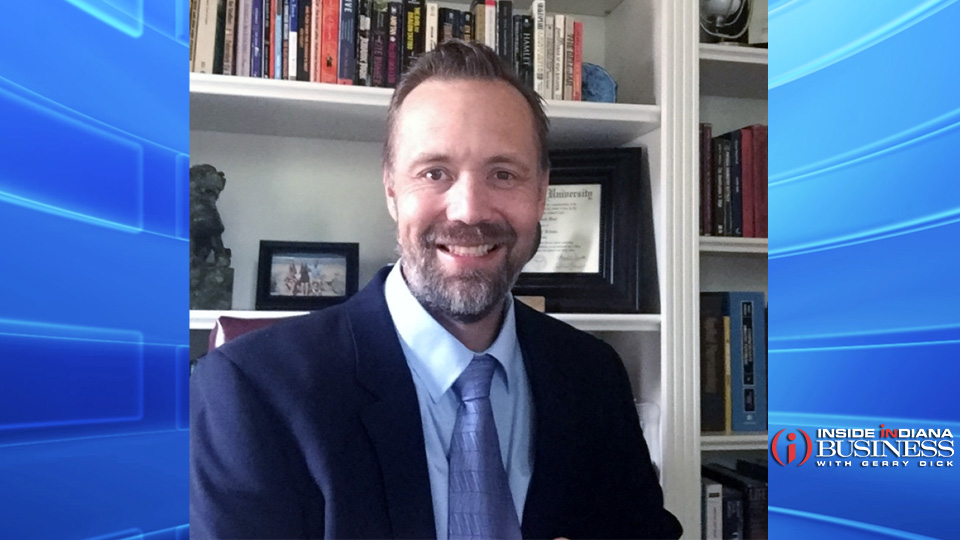Startup awarded nearly $1M to advance diabetes drug
Subscriber Benefit
As a subscriber you can listen to articles at work, in the car, or while you work out. Subscribe Now
New treatments for the 1.6 million Americans with type 1 diabetes have remained frustratingly elusive for drug developers, but Neurodon classifies its potential drug as “game-changing.” The startup, based in the Purdue Research Park of Northwest Indiana, is confident it’s uncovered a new treatment that could reduce insulin dependency for millions of Americans. Neurodon says it’s not using the most popular approach in the research world, but the drug candidates are showing promise—so much so that the JDRF (Juvenile Diabetes Research Foundation) recently awarded the startup a nearly $1 million grant to move its molecules one step closer to patients.
“The only medication for type 1 diabetes (T1D) currently is insulin,” says Neurodon founder and Chief Executive Officer Dr. Russell Dahl. “There is medication to control blood sugar, however, there’s no approved medication that actually improves the underlying condition, which is the dysfunction and destruction of beta cells in the pancreas.”
Dahl believes that Neurodon may uncover the first. In T1D, the body’s immune system causes destruction of beta cells, and as a result, they eventually stop producing insulin. It’s long been thought that these beta cells are dead, but it’s now known that they’re just in a “sleeping” state and not producing insulin.
“There’s still cell viability,” says Dahl. “With our therapeutics—at least in the models we’ve looked at—we’ve shown that we can take what were thought to be dead beta cells, which are actually sleeping beta cells, and increase their insulin secretion and, basically, get them back to a functional state.”
Neurodon says its approach is unusual in diabetes therapeutics; the startup focuses specifically on the calcium imbalance within the beta cell and designing molecules to correct that calcium imbalance, ultimately returning the pancreas to a healthy state.
“Unlike all of the drugs out there that only control blood sugar, this one would actually improve beta cell health and, in that regard, it modifies or reverses the disease,” says Dahl.
And that caught the attention of the JDRF, a nonprofit funder of T1D research, which recently awarded Neurodon a $920,000 grant. The money supports a two-year research and development partnership, which includes working with Dr. Carmella Evans-Molina at the Indiana University School of Medicine. Dahl says she’s one of the most prominent T1D researchers and “one of the few” focused on calcium regulation.
“The fact that she’s here in Indiana was really serendipitous; our company and her research both have very similar interests,” says Dahl. “That just kind of worked out like it was meant to be or something.”
The partnership, which also includes Universite Libre de Bruxelles in Brussels, involves testing Neurodon’s patented drug candidates “in some of the most relevant models with our academic collaborators.”
“These are cutting-edge T1D models, so we’re going to hopefully discover one or more candidates that will lead to clinical trials,” says Dahl. “That’s why we’re excited and JDRF is excited with our preliminary data that shows we’re able to improve a lot of the different aspects of [T1D], including in human cell models.”
Within its pipeline, Neurodon has prioritized its diabetes molecules, but the startup’s overall mission is “curing the uncurable.” Dahl’s journey to design molecules to correct calcium imbalance led him to a specific protein target called SERCA.
“Turns out, SERCA is compromised in a lot of different diseases,” says Dahl. “We know we can get into clinical trials rather quickly with diabetes. That being said, we are working on other indications, such as Alzheimer’s with the NIH and some rare diseases that also show promise.”
A chemist by training, Dahl says the “compelling data” he’s seeing makes him very eager to move his ideas out of the laboratory.
“We’re looking at diseases where there have been so many failed clinical trials; there’s really nothing available to slow or halt the disease progression,” says Dahl. “Seeing patients’ condition improve—that’s the most exciting thing to think about and what keeps us going every day.”
While the diabetes treatment will likely reach clinical trials first, Dahl says Neurodon is “opportunistic” regarding other molecules in its pipeline.
